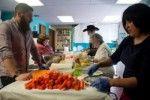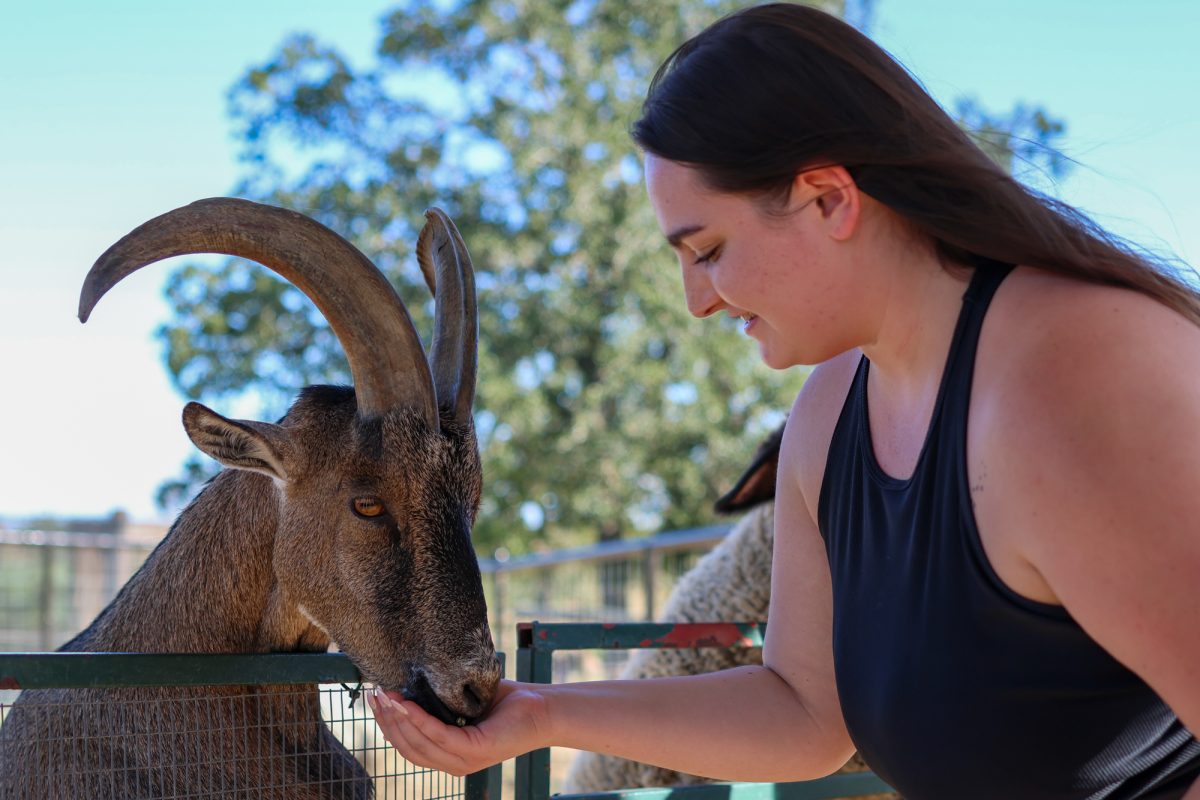The smell bubbling up from pots on a stove carries from the kitchen, while the steady rhythm of a knife chopping carrots provides a tempo for the crowd busily preparing the approaching feast.
Sundown of the 15th day of the month of Nissan which corresponds this year to sundown of March 25 marks the beginning of Passover. Passover is a Jewish holiday that takes place during eight days (seven days in Israel), commemorates the exodus of the Jewish people out of Egypt and is notably marked by differences in dietary laws.
Rabbi Yossi Lazaroff of the Rohr Chabad Jewish Student and Community Center explained the historical and spiritual significance of the holiday.
Passover is a holiday, otherwise known as pesach in Hebrew, Lazaroff said. It commemorates the exodus of Egypt where the Jewish people were slaves and God took us out and set us free. But as part of the biblical element of the exodus, Passover is commemorating this concept of freedom, celebrating freedom.
Members of the Jewish faith traditionally observe dietary laws, but during Passover these laws become more restrictive. Kenny Abitbol, a sophomore nuclear engineering major, described these restrictions.
We cant eat chametz, which is the leavened bread and anything that its made out of, Abitbol said. Now, we normally cant eat most things, because its made out of certification. Now it goes even beyond that anything thats made in a factory, any of that stuff we cant eat from unless it has its supervision symbol on it.
Matzah, unleaved bread made from flour and water, is consumed throughout the celebration. It is also referred to as bread of faith or bread of healing.
Not only can leavened food products not be consumed, they are not even seen.
Part of the Biblical commandment is not only the eating of the matzah on Passover, but also to remove any leavened products in ones home, which is any type of wheat, barley, things like that, Lazaroff said. Its not only about eating, its also not seeing it or finding it, which ultimately means cleaning up the house, clean it very well because youre not allowed to own it, youre not allowed to have it in your home during the Passover.
The entire house also must be cleaned, with special attention paid to the kitchen. Utensils and equipment that has been used throughout the year must either be cleaned or put away for Passover.
Not using leavened products, thats a big part of the job, you talk about taking a week or two just to prepare for Passover and get the place ready, Lazaroff said. Even your oven is used for leavened products, we have to Kosher the oven, which means cleaning it out well and heating it. Theones that are not self-cleaning, you need to use a blowtorch and things like that. I have a whole separate Passover oven, I have a whole separate kitchen in a sense that I use for Passover.
Not only can the cleaning be a time-consuming process, but preparing meals can also prove to be a challenge due to the restricted dietary laws. Matzah, which can be consumed throughout the holiday, can be transformed in a variety of ways, is used for matzah ball soup and even pizza.
Passover is actually a very funny holiday, because its a time where the individual gourmet chefs shine, Abitbol said. The average Joe cant make all these creative ideas for food.
To assist students who may not have the time or resources to prepare the correct foods for the holiday, the Chabad offers a dining program to provide students with lunch and dinner over the eight days of Passover. Seder, which means order and involves a meal, is observed the first two nights and is also provided for students and community members at the center.
What we provide at our center for the Texas A&M students is, number one, the Seder itself, but also an entire Passover dining program, Lazaroff said. Because being that youre not allowed to eat leavened products, its much more difficult, and you also have to clean your house and Kosher it. Its a big undertaking that a lot of students either dont have the time for nor the financial means to be able to do that, or the ability of where their living in the dorm to do that.
Justine Berman, freshman animal science and Blinn Team major, is participating in part of the dining program and cooking some of her own meals. She said, however, the dietary laws were more than just restrictions on food.
It really transforms you, because we are basically mimicking their dietary habits and needs, Berman said. And yes, we are privileged enough to have more a variety of food than they were, but it really helps you get into the spirit and kind of understand a little bit more what they were going through and what they had to do.
Jewish community prepares for commerative holiday
March 27, 2013

0
Donate to The Battalion
$70
$2500
Contributed
Our Goal
Your donation will support the student journalists of Texas A&M University - College Station. Your contribution will allow us to purchase equipment and cover our annual website hosting costs, in addition to paying freelance staffers for their work, travel costs for coverage and more!









